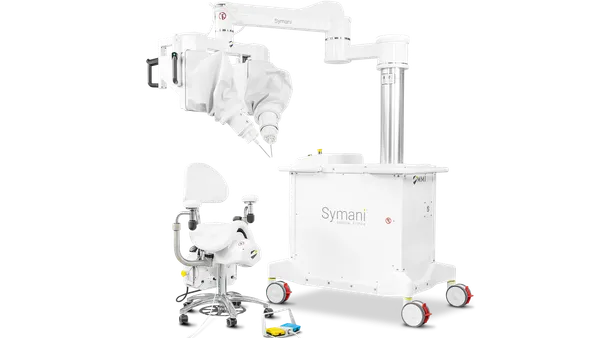Dive Brief:
- FDA is working with medical device manufacturers on updated labeling for paclitaxel-coated devices to include information about a late mortality signal in peripheral artery disease patients, the agency said Wednesday.
- More research into the long-term safety profile of the devices using new randomized trials and registry datasets is also planned by the agency and manufacturers. FDA is also working with clinical trial investigators to add information about the late mortality signal in informed consent documents.
- The new steps appear to closely parallel the recommendations that the FDA's Circulatory System Devices Panel Advisory Committee made in June following a two-day meeting. BD, Medtronic, Boston Scientific, Philips and Cook Medical currently have paclitaxel devices on the market.
Dive Insight:
Physicians should "continue diligent monitoring of patients" with PAD already treated with a paclitaxel-coated device and consider there might be an increased risk of long-term mortality for such patients when making new treatment recommendations, according to FDA.
Individual patients with high risk for restenosis and repeat interventions may still have a favorable risk-benefit for a paclitaxel-coated device, the agency noted. Doctors should consider "patients' expectations, concern and treatment preferences" when considering using a paclitaxel-coated balloon or paclitaxel-eluting stent.
"For many patients, alternative treatment options to paclitaxel-coated balloons and paclitaxel-eluting stents provide a more favorable benefit-risk profile based on currently available information," FDA said.
Needham's Mike Matson wrote in a research note the new recommendations could potentially broaden the patient population that could benefit from a paclitaxel-coated device because most patients with PAD are at risk of repeat interventions.
"Given the updated list of recommendations, we believe utilization of paclitaxel-coated devices could increase going forward albeit less than it was prior to the publication of the meta-analysis," Matson wrote.
Still, challenges remain for paclitaxel-coated devices. BD told investors Tuesday FDA said its premarket application for its Lutonix drug-coated balloon is not approvable in its current form given the clinical evidence collected to date.
FDA agreed with the advisory panel that there is not clear evidence of a dose effect on mortality or a "identified pathophysiologic mechanism for the late deaths." The agency said the pooling of data from multiple companies' devices is inadequate to determine a path forward.
"Because of the demonstrated short-term benefits of the devices, the limitations of the available data, and uncertainty regarding the long-term benefit-risk profile of paclitaxel-coated devices, the FDA believes clinical studies of these devices may continue and should collect long-term safety (including mortality) and effectiveness data," the agency wrote.
Boston Scientific said in a press release it is pleased the agency did not take action to restrict access to the devices.
"We look forward to collaborating with the FDA and industry partners, as appropriate, on the revised labeling changes, data collection requirements and informed consent protocols to ensure treatment options are available for the 8.5 million patients in the U.S. suffering from PAD," Boston Scientific wrote.
Cook Medical's Aaron Lottes, director of regulatory science, told MedTech Dive in an email the company will continue to work to procure data needed to give physicians and patients the ability to make informed treatment decisions.
Philips told MedTech Dive it is "actively assessing the implications of the letter." Medtronic said it is "encouraged by this path forward," adding "our work to evaluate the root cause of this safety signal is not complete." BD did not comment in time for publication.












